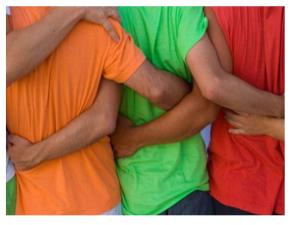Filed under: Corporate Social Responsibility, Directions for Sustainable Innovation, Sustainability News | Tags: Innovation, Metrics, Social Impact, Sustainability

The environment has been an impetus for innovation in the last couple of years. Many companies are applying environmental assessments to develop new products with environmental benefits and a sound business case, such as Veolia Environnement, Philips, Ericsson, Redevco and many others. Metrics play an important role to set objectives and measure progress. How can we fit ‘People’ into the equation? What if we were able to measure the social impacts of products? Wouldn’t that be great?
Social impact measurement has become subject of study of a growing group of organisations. Among them is the French Normalisation Institute AFNOR. The task force ‘Affichage Social’ aims to develop a mechanism to assess the social impact of products, with a focus on the work force ‘upstream’; at suppliers. Danone has set a dual mission of Business Success and Social Progress and is searching for the appropriate ways to measure. The United Nations UNEP-SETAC workgroup has developed guidelines for social impact along the life cycle of a product. A ready-to-use and agreed methodology has not been surfaced so far.
DSM, a global science company based in The Netherlands, active in health, nutrition and materials is actively searching for ways to create products that measurably improve people’s lives. The company started to develop its People+ Strategy.People+ will do for the ‘people’ element of the three ‘P’s what the companies ‘Eco+’ program has done for ‘planet.’ For this it needed metrics to measure the impact on lives of people.
Starting point was to define the people affected by the business. In other words: the people involved in making and using our company’s products. The number of stakeholder groups involved were brought down to three: employees, communities and end-users.
Knowing on which people DSM has an impact, the size of the impact needed to be identified. The developed ‘DSM People LCA’ metrics have been based on international standards and company values. The framework consists of four dimensions: Health Condition, Comfort & Well-Being, Working Conditions and Community Development. Currently the metrics are being road-tested in different industry applications. DSM strives in making the metrics a stepping stone towards a future harmonized methodology and takes an active role in engagement with industry peers, scientists, and consortia – such as with industry peers in the Product Social Metrics Roundtable.
To have a good yardstick for developing products that can improve people’s lives is an important benefit. Roadtesting and engaging with customers and suppliers brings even more advantages. More about the journey of People+ on November 19th at the Sustainable Brands conference in London.
Leave a Comment so far
Leave a comment